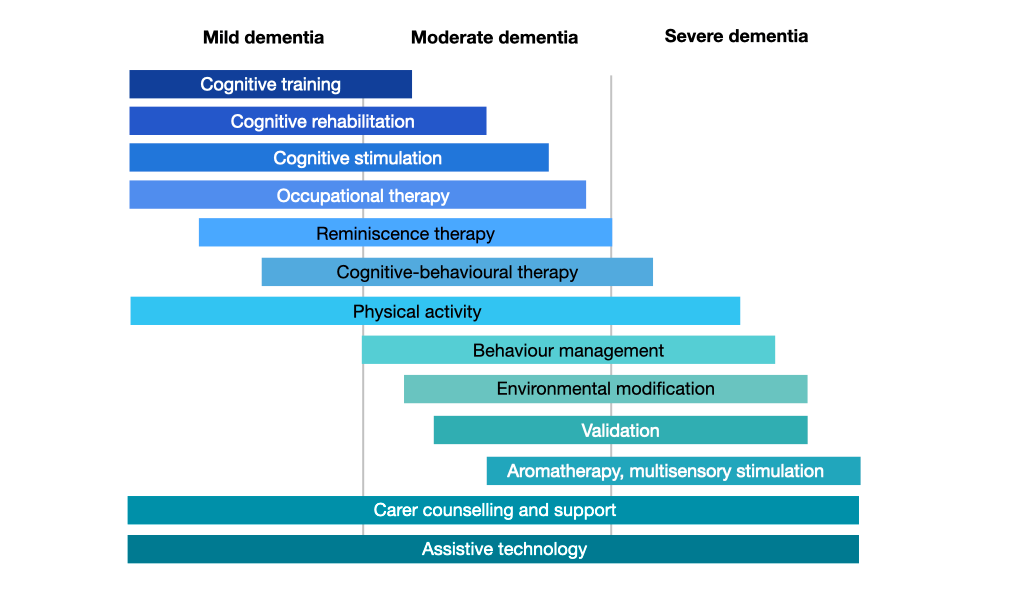Why interprofessional management of dementia?

Unlike pure physical or psychiatric disorders, dementia has a profound impact on an individual’s intellectual capacity, level and range of activities, emotions, behaviours, and interpersonal relationships. Therefore, managing dementia is not just treating a medical condition. Rather, it means rearranging a person’s entire life to cope with and adjust to dramatic changes.
Managing dementia means rearranging a person’s entire life
This is an enormous task which cannot be accomplished by one professional or one professional group alone. In order to provide comprehensive and person-centred treatment a network of interacting professionals is required.
An interprofessional team is a group of allied healthcare professionals that work together closely and communicate frequently to optimise care. Each team member contributes unique knowledge, skills and experience to support and augment the entire team.
Most professional groups need to collaborate throughout the course of dementia, whereas the activity of some is most appropriated at mild and moderate stages. All professional groups must be aware that their contributions to the management of dementia are important and that collaboration is essential. The collaboration of actors in the network should be guided and coordinated by a shared care plan.
Profession-specific interventions in dementia care

Each team member contributes unique knowledge, skills and experiences that supports and augments the entire team
Working with people with dementia
What is the added value of interprofessional management of dementia?
An interprofessional team offers benefits for people with dementia and carers, but also for the professionals involved. Benefits for people with dementia and carers include:
- Comprehensive assessment of people with dementia and carers
- Individually tailored interventions and solutions
- Planned, coordinated and pro-active interventions
- Better use of available pharmacological treatments
- Increased use of non-pharmacological interventions
- Lower incidence of behaviour problems
- Referral to caregiver educational programmes
- Reduced carer distress and depression
- Reduced frequency of admissions to residential and nursing home care
Benefits for professionals include:
- Effective coordination and communication
- Enhanced problem solving
- Better adherence to medical guidelines
- Efficient use of resources
- Reduced clinical error and duplication of efforts
- Improved transitions of care
- Better detection of co-morbid and potentially treatable conditions
Interprofessional management offers benefits for people with dementia, carers, and professionals
What are the economical implications of interprofessional management of dementia?
Initially, interprofessional management of dementia requires additional time and effort to establish appropriate communication channels and documentation systems. However, at the end of the day a collaborative model of care can be cost-neutral or even cost-saving through reducing rates of institutionalisations, hospital admissions and inappropriate use of medical and social services, which are key cost drivers. Specifically, a collaborative care model has the potential of improving quality of life at lower costs compared with usual care.
